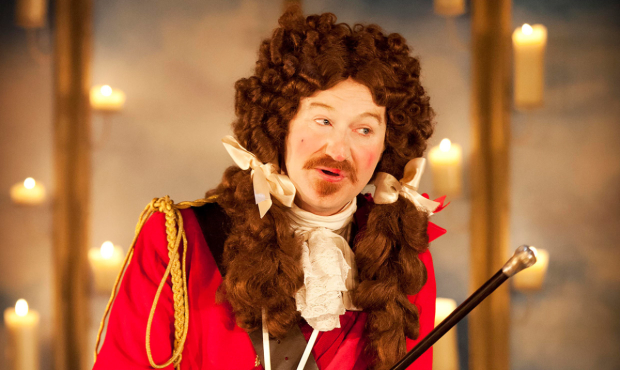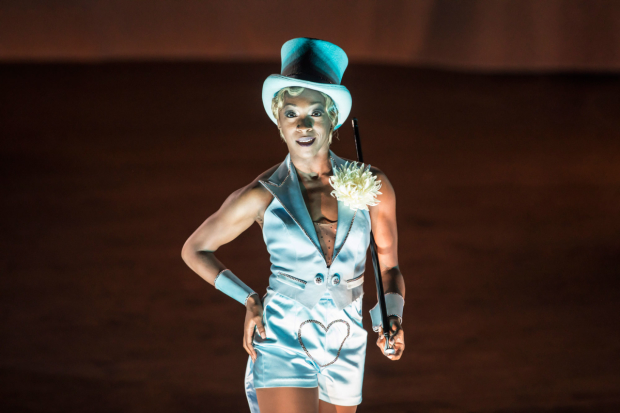Josie Rourke is putting the comedy back into Restoration comedy

© Johan Persson
I’ve been thinking a lot recently about Restoration comedies. (I know, I need to get out more, but there you go.) I started to consider them when I wrote a blog about the way contemporary theatre so rarely reflects the loves and lives of young people because the plays of Goldsmith, Congreve, Wycherly and the like did exactly that. They looked at the generational conflict, sexual intrigue, love and lust happening around them and put it onstage with a little wit dusted over the top.
When I was first going to the theatre, these plays formed a mainstay of the repertory. But they have fallen out of favour, got stuck in a time warp of bewigged fops and farthingaled ladies. The theatrical conventions of the time turned characters into stock grotesques in a way that now tends to obscure the human truthfulness that lies beneath. Yet if you put them into modern dress, the societal conventions on which their plots hinge seem anachronistic. They are tricky to pull off.
But the Donmar’s artistic director Josie Rourke obviously has a fondness for the genre. She opened her tenure with a rare revival of George Farquhar’s The Recruiting Officer, a late example of the style. Thanks in no small part to illuminating performances from Nancy Carroll, MacKenzie Crook, Mark Gatiss and Tobias Menzies among others, Rourke’s own razor sharp direction managed to coax both humour and humanity from a play which usually requires a working knowledge of the Spanish War of Succession.
Restoration comedies have fallen out of favour…they are very tricky to pull off
Now, in a season that includes the excitement of the British premiere of Amy Herzog’s much-praised Belleville (with James Norton) and a revival of Peter Gill’s The York Realist, she is including what she calls "the best comedy written in the English language" – William Congreve’s The Way of the World.
That 'best comedy ever' tag is regularly applied to this play. I have friends who still go misty eyed as they recall Maggie Smith’s performance as the heroine Millamant, her delivery full of double entendres and delicious humour but also informed by the sadness of a clever woman giving up her liberty by giving herself and her fortune in marriage.
But the difficulties posed by the play are revealed by the fact that it has not had a major production in London since 1995 when Phyllida Lloyd staged a radically updated version at the National Theatre to what can be kindly described as mixed reviews. I saw it, yet all I remember are DayGlo costumes, and the famous wooing scene between Fiona Shaw’s Millamant and Roger Allam’s Mirabel being rather funny. Geraldine McEwan as Lady Wishfort seems to have made no impact on my memory at all, though I am sure she was very good because she always was.
Modern actors have lost the knack of finding their way into the heart of the Restoration comedy
A version directed by Rachel Kavanaugh at Chichester in 2012 starred Penelope Keith, but even her star power failed to carry it into the West End.
The problem is, as the Independent‘s Paul Taylor remarked, Congreve's plot "makes three-dimensional chess look like a game of snap". It is very, very difficult to follow all the machinations that drive the story and the love lives of the couples involved. When it's hard to follow, it becomes harder to care.
Perhaps too, however, because modern actors perform Restoration comedies so rarely, they have lost the knack of finding their way into its heart. They concentrate on the surface, without ever penetrating to the emotions beneath. It is possible to cut through the carapace of artifice and discover the eternal verities; it might even be feasible to unearth the jokes.
The Way of the World will open at the Donmar Warehouse from 29 March 2018.













